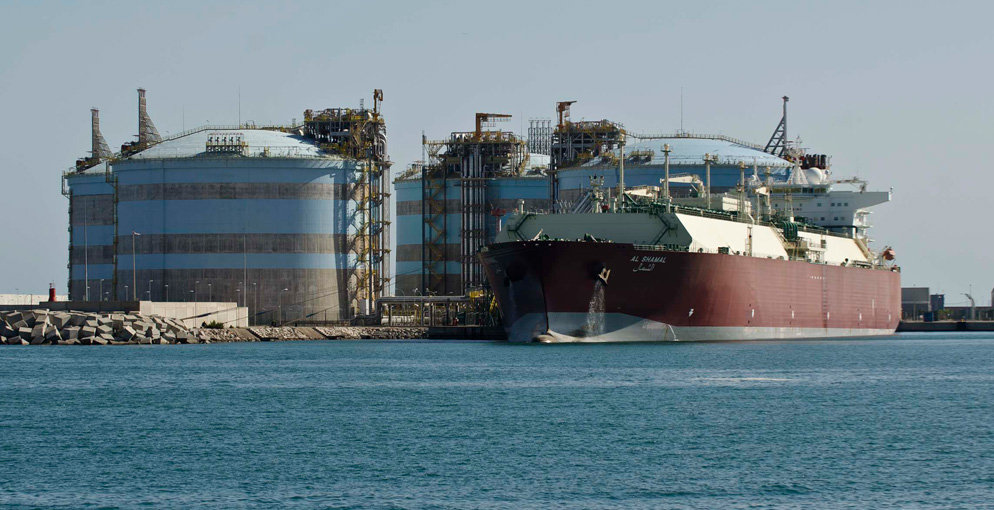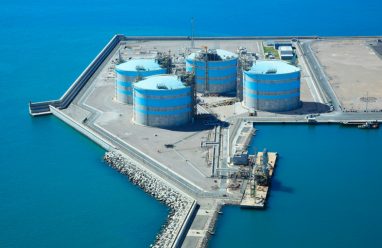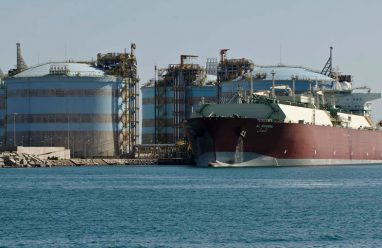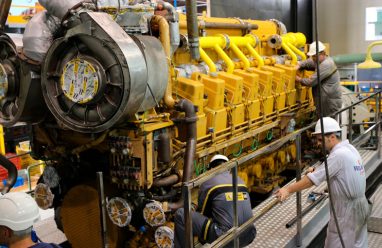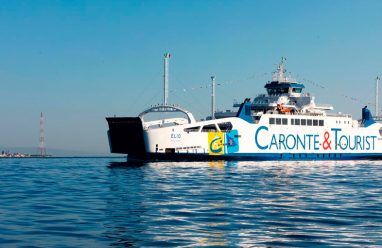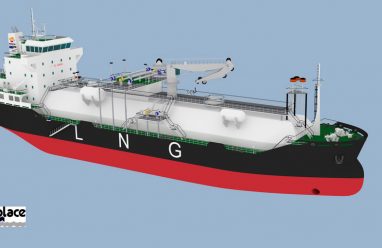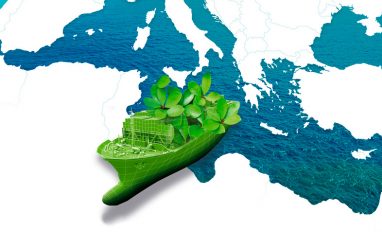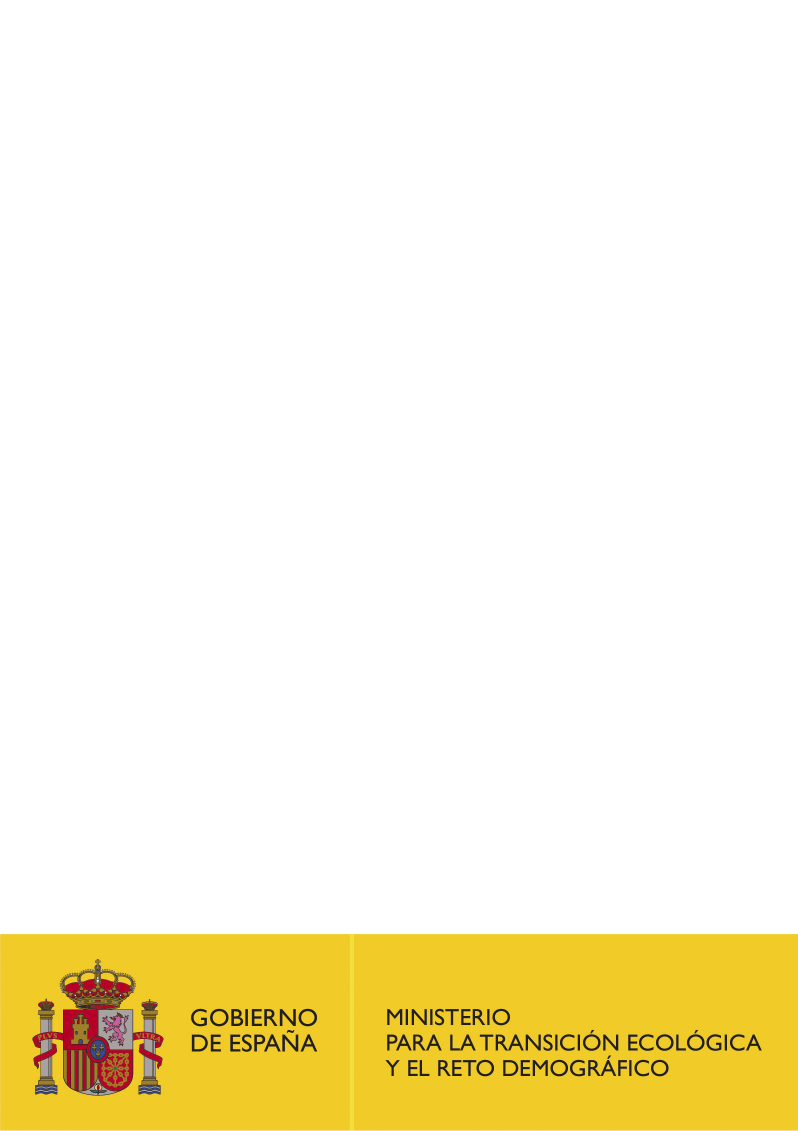The aim of the project is to develop an integrated, safe and efficient logistics chain for the supply of liquefied natural gas, LNG, (small scale and bunkering) as fuel in the transport sector, especially shipping, in the Iberian Peninsula.
CORE LNGashive contributes to the decarbonization of the Mediterranean and Atlantic corridors in Europe, and represents a step forward in the race to cut emissions, the promotion of clean energy for transport and EU-driven efforts to care for the environment.
LNG is one of the most environmentally-friendly of all the fossil fuels, generating around 30% less CO2 than crude oil and derivatives. It also helps to reduce emissions of sulphur oxides (SOx) and particulate matter (PM), as well as nitrogen oxides (NOx). This helps ensure compliance with environmental regulations.
Thanks to its geostrategic location and key gas infrastructure, the Iberian Peninsula can consolidate its position as a point of reference for LNG in Europe. The CORE LNGas hive initiative was thus chosen for the development of the Trans-European Transport Network in the 2014 Call for Proposals. Total investment in the project is €33 million, which includes €16.5 million in funding from the European Commission.
The CORE LNGas hive project includes 25 initiatives, including both studies and pilot projects. They are aimed at adapting the LNG supply infrastructure and logistics in the port-maritime sector, and ensuring their commercial development. Project initiatives include a number of pilot projects such as adapting the infrastructure of all the regasification plants for small-scale supply of LNG and/or LNG bunkering; the construction or retrofitting of barges for LNG bunkering in Barcelona and northern Spain; as well as the testing and validation of the use of LNG as a fuel for tugboats, port cranes, and land transport (rail transport). The project also includes a number of studies that are essential for the deployment of an LNG logistics chain in the port-maritime sector, such as the estimation of potential demand for LNG and the logistics chain required for its supply; the development of technical and safety standards; the analysis of public acceptance of LNG; and the study of training needs for the use of LNG.
Specifically, of all the actions included in the CORE LNGas hive project, Fundación Valenciaport is directly involved in the following:
LNG demand and supply chain analysis for the roll out
Directive 2014/94/EU of the European Parliament and of the Council of 22 October 2014 on the deployment of alternative fuels infrastructure requires each member state to adopt a National Action Plan (NAP) for developing the market for alternative fuels in the transport sector and implementing the corresponding infrastructure.
As part of the NAP, an analysis of the potential market is needed, in order to minimize uncertainty regarding the evolution of the demand for LNG as a marine fuel in Spanish ports. In this regard, Fundación Valenciaport has contributed by carrying out a study to evaluate the optimal technological alternative that would enable compliance with the new emissions regulations while ensuring the best possible financial results for shipowners. Based on these results, the potential demand for LNG bunkering in Spain and Portugal has been estimated.
Adaptation for LNG bunkering/small-scale services in the Sagunto regasification plant.
Fundación Valenciaport has participated in this action alongside its partners SAGGAS and the Port Authority of Valencia. The aim of this action is to carry out the technical and financial studies needed to adapt the SAGGAS facilities so that they can supply the required volumes of LNG forecasted for the period 2020 to 2035.
LNG-fuelled tugboat
Fundación Valenciaport has participated in this action alongside its partners Boluda Corporación Marítima, SEAPLACE, Bureau Veritas and the Port Authority of Valencia. The aim of the action is to provide the basic engineering work for a new tugboat powered by LNG. Although gas engine technology is not new, LNG-fuelled tugs are groundbreaking in this maritime sector. As such, the development of this boat calls for significant advances in technical know-how. In addition to the end-user requirements, the tugboat will have to comply with the international safety code for gas-fuelled ships and the rules of the classification society, Bureau Veritas.
LNG/CNG mixed station for vehicles and small boats
Fundación Valenciaport has participated in this action alongside its partners Molgas and the Port Authority of Valencia. The objective of this pilot is to propose an innovative approach for small-scale LNG terminals, with solutions that are technically and economically viable. A small-scale LNG logistics chain usually refers to the distribution of LNG to local users. Specifically, the proposal is to provide an alternative LNG supply in the port area for ships, vehicles and other mobile equipment. This pilot will test the logistics chain for LNG supply in a port without a regasification plant.

